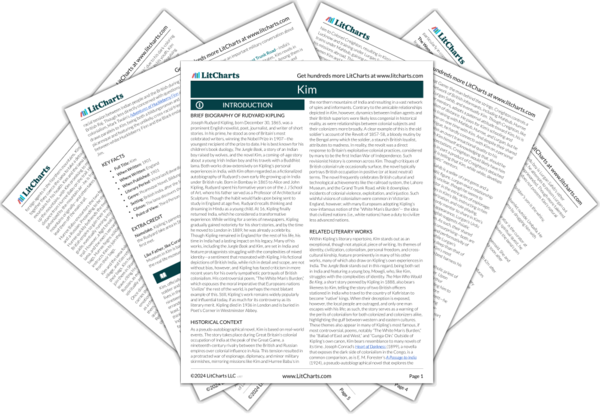Despite Kim rudely breaking his promise to “reward” her for her help, the Woman of Shamlegh provides him and the lama with food and transportation. Such generosity undermines Kim’s prior rhetoric around the evils of women, highlighting the unjust nature of Kim’s prejudice. Though she has every reason not to help him, the Woman of Shamlegh still does, looking past Kim’s rudeness and her own negative experiences with sahibs to do so.
